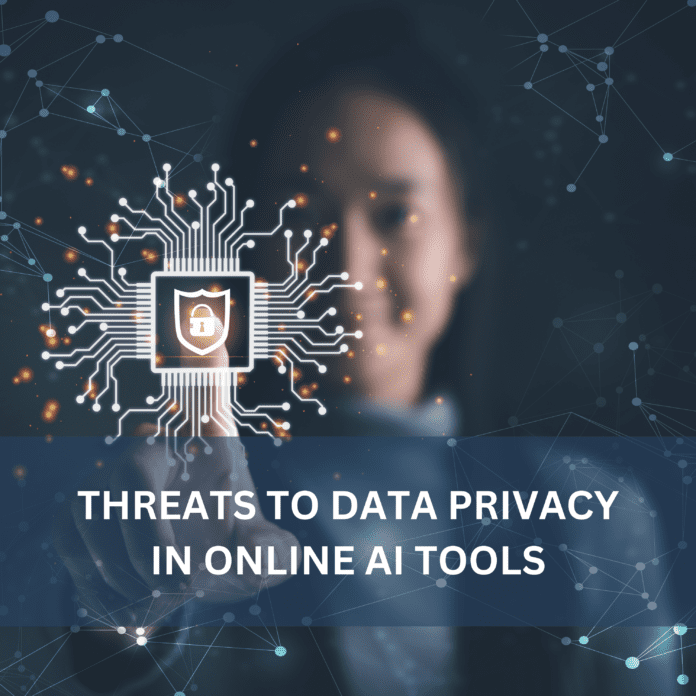In the rapidly advancing landscape of artificial intelligence, online AI tools have become integral to our daily lives, offering convenience, efficiency, and innovative solutions. However, this convenience comes at a cost, as the sharing of data with AI tools online poses several threats to data privacy. Understanding and addressing these threats is crucial for safeguarding personal information in the digital age.
- Data Breaches and Unauthorized Access: One of the most significant threats to data sharing with AI tools is the risk of data breaches. As users input sensitive information into these systems, such as personal details, financial data, or medical records, there is a potential for malicious actors to gain unauthorized access. This could lead to identity theft, financial fraud, or other forms of cybercrime.
- Lack of Transparency in Data Handling: Many AI tools operate as black boxes, making it challenging for users to understand how their data is handled. The lack of transparency raises concerns about whether the data is stored securely, how long it is retained, and whether it is shared with third parties. Without clear communication on data handling practices, users may unknowingly expose themselves to data privacy risks.
- Algorithmic Bias and Discrimination: AI systems are trained on large datasets, and if these datasets contain biases, the algorithms can perpetuate and even exacerbate those biases. This poses a threat to marginalized groups who may experience discrimination based on factors such as race, gender, or socioeconomic status. Data shared with AI tools can inadvertently contribute to the amplification of existing societal biases.
- Inadequate Data Encryption: Data transmitted between users and AI servers is susceptible to interception by hackers if not properly encrypted. Inadequate encryption methods make it easier for malicious actors to eavesdrop on communications, compromising the confidentiality of the shared data. Robust encryption protocols are essential to protect sensitive information during transmission.
- Legal and Regulatory Challenges: The evolving nature of AI technology often outpaces the development of comprehensive legal frameworks. As a result, there may be gaps in regulations concerning the collection, storage, and use of data by AI tools. Users face uncertainties regarding the legal protection of their data, and the absence of clear guidelines can leave them vulnerable to misuse.
- Targeted Advertising and Profiling: AI tools often collect user data to personalize experiences, including targeted advertising. While personalized content can enhance user experiences, it also raises concerns about the creation of detailed user profiles. These profiles can be exploited for intrusive advertising, manipulation, or even surveillance, eroding the privacy of individuals.
In conclusion, the integration of AI tools into our online experiences offers tremendous benefits but also exposes users to various threats to data privacy. Addressing these challenges requires a concerted effort from developers, regulators, and users alike to implement robust security measures, enhance transparency, and establish clear legal frameworks that prioritize the protection of personal information in the digital age. As we continue to embrace the transformative power of AI, safeguarding data privacy must remain a top priority to ensure the responsible and ethical use of these technologies.


